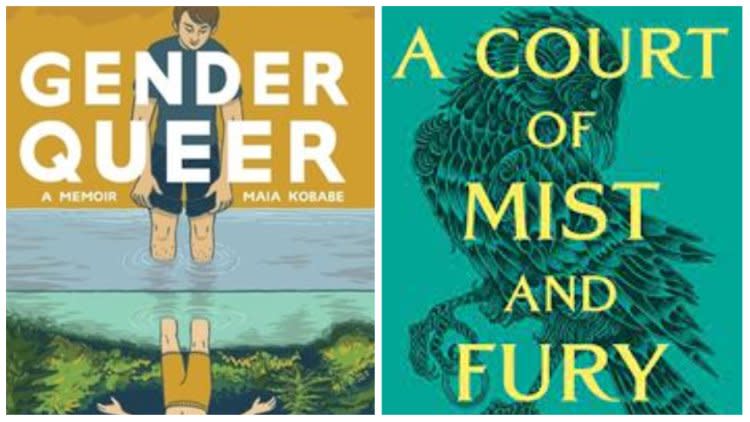Virginia Court Rejects Effort to Ban Books Including 'Gender Queer'

A judge in Virginia has rejected an effort by Republican politicians to have two books labeled as obscene and illegal to sell or lend in the state.
The books challenged were Gender Queer, an illustrated memoir by nonbinary author Maia Kobabe, and A Court of Mist and Fury, a fantasy novel by Sarah J. Maas that has some sexually explicit scenes. Gender Queer was the most banned book in the United States in 2021, according to the American Library Association.
Former congressional candidate Tommy Altman and his lawyer, Tim Anderson, a member of the Virginia House of Delegates, both Republicans, had sought legal action to make the books unavailable to minors. The law under which they brought the challenge doesn’t have a category for minors only, though, according to the American Civil Liberties Union and its Virginia affiliate, which represented booksellers and literary groups in the case. So it could have threatened distribution of the books even more widely, although Altman and Anderson argued that there should be separate standards for children and adults.
The law “has not been used for decades” but “purports to allow any individual to file a petition claiming that any book is obscene,” the ACLU notes on its website.
In May, Judge Pamela Baskervill of the Virginia Beach Circuit Court issued orders “finding probable cause the books could qualify as obscene,” the Virginia Mercury reported at the time. Her action gave the books’ authors and publishers 21 days to respond. The booksellers and associations represented by the ACLU responded as well.
Then Tuesday, Baskervill vacated the probable cause order and dismissed the politicians’ challenge to the books, saying the law they were using was unconstitutional, as it violated rights to free speech and due process. The law is “facially invalid,” she said, although she added that the state legislature should deal with the statute instead of her court, the Mercury reports. She also said that under the law, she can’t rule that a book is obscene only for minors.
“We are pleased with the outcome of today’s proceedings,” Matt Callahan, senior staff attorney for the ACLU of Virginia, said in a press release. “The First Amendment protects literary expression, even when some people find portions of the works difficult or objectionable. All people should be able to choose what they wish to read.”
The Virginia ACLU’s legal director, Eden Heilman, told the Mercury she hopes that either the legislature will repeal the law in question or a higher court will strike it down.
Anderson said he will consider appealing to a higher court. He told the paper there should be ratings for the age-appropriateness of books, as there are for movies, video games, and other media. He may introduce one when the legislature meets again, he said. He added that he did not object to the queer theme of Gender Queer but rather its illustrated depiction of oral sex.
Robert Corn-Revere, a lawyer who represented Barnes & Noble in the proceedings, said in courts that under the Virginia law that allowed the challenge, a book could be found obscene in one location but then the finding could apply statewide. “That is the essence of censorship under the First Amendment,” he said, according to the Mercury.
The ACLU agreed. “The proceeding can result in a court order enjoining the distribution of the challenged book anywhere in the state of Virginia merely upon that finding of 'probable obscenity,'” its website says. “The And if the book is ultimately adjudged obscene based on local community standards, the proceeding will result in a presumption that anyone who sells or even lends the book knows it is legally obscene, opening the door to criminal prosecutions for book distribution. ... The challenge comes amid increased efforts to ban books around the country, but appears to be the first attempt to ban any sale or distribution of a book statewide.”

